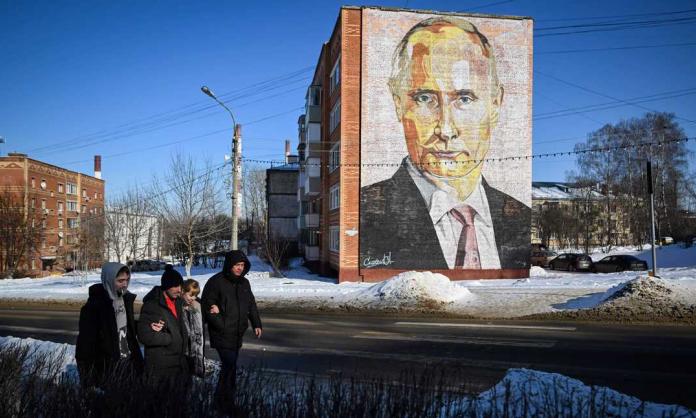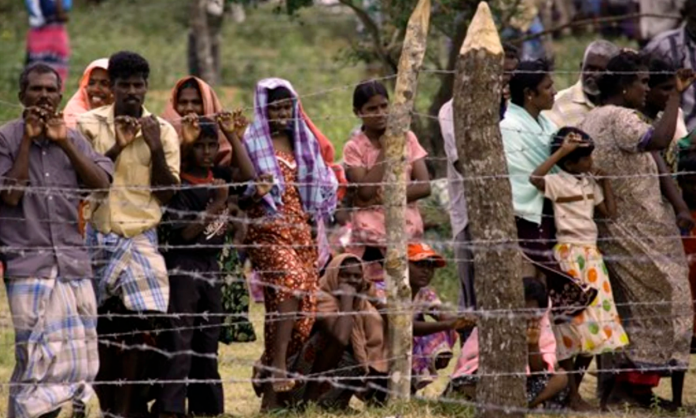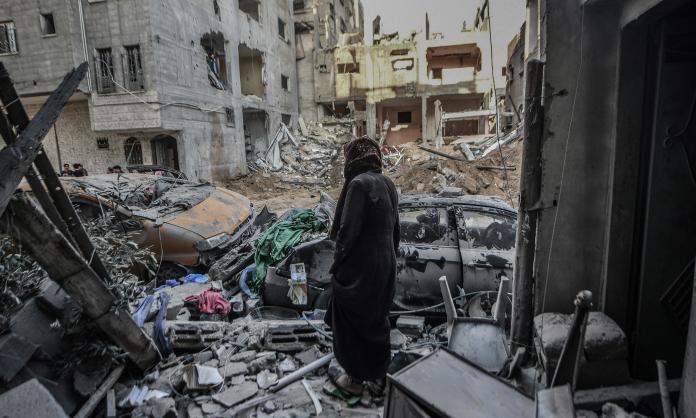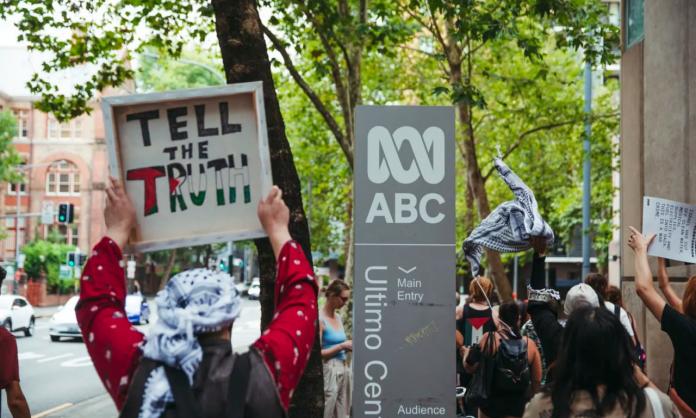It’s been more than a year since Russia invaded Ukraine, and the results have been devastating. A 21 February UN Human Rights Office report estimates that at least 8,101 civilians have been killed, 14 million have been forced to abandon their homes, and 18 million are in “dire need of humanitarian assistance”. There are no accurate figures for the number of casualties among soldiers, but estimates are well over 100,000 for each side.
Russian President Vladimir Putin is systematically destroying Ukraine. Critical infrastructure providing electricity and energy has been targeted in a policy of collective punishment, leaving millions in cold, dark misery. The annihilation of the eastern port city of Mariupol was an early warning, aimed at deterring Ukrainian resistance by displaying the overwhelming destructive capacity of the Russian military.
Yet the Ukrainians continue to resist bravely. Predictions that the war would be over in a few weeks turned out to be way off the mark, as the population mobilised to fight the occupying forces. The Russian army was repelled from the capital, Kyiv, in the early days of the invasion, and late last year the Ukrainian military managed to recapture significant territory from the Russian military.
The northern winter froze the front lines, both literally and metaphorically, icy conditions hampering mobility. During this time, both sides have rearmed and expanded their forces.
Russia is now deploying hundreds of thousands of newly conscripted troops, predominantly drawn from prisons and the poorer parts of the country. Meanwhile, Ukraine has continued to receive significant support from the West. Germany-based think tank the Kiel Institute has documented more than €50 billion in direct military aid over the last year, supplemented by a similar amount in financial and humanitarian assistance.
Nobody knows what will happen next. Moscow will be hoping that its new soldiers can overcome the tiring defences of its smaller neighbour. Short of that, Putin will want to turn the conflict into a grinding war of attrition. This has the potential benefits of demoralising the Ukrainian population and increasing the pressure on those who back them, via inflated prices for essential goods and the sheer scale of aid required to keep the Ukrainians armed.
The Wall Street Journal recently reported that the European powers are considering a proposal to force Ukraine into an agreement that would partition the country into pro-West and pro-Russian states. The carrot would be security guarantees for the Western side. The stick would be the threat of withdrawing the aid that enables the ongoing resistance. Such an outcome would be the most reactionary of all, integrating each part of the country into imperial interests without achieving justice for the Ukrainian people.
The majority of Ukrainians, however, continue to insist that resisting the invasion of their country is a democratic right—a proposition with which no principled socialist can disagree. Democratic control over society by workers and the poor is impossible when a country is dominated by a foreign power. Russian socialist Vladimir Lenin ridiculed those who supported the right to self-determination but opposed the right to fight against a foreign occupation.
“We are against annexations, but ... we are against the annexed waging a war for their liberation from those who have annexed them ... Isn’t that an annexationist declaration?”, he wrote in a 1916 article, “The discussion on self-determination summed up”.
The war has triggered a carnival of militaristic reaction in the West. The US has seized the moment to strengthen the NATO alliance, which now covers the vast bulk of Europe and is in the process of adding two more countries to its ranks. Japan and Australia have become de facto members, as part of the organisation’s pivot to viewing China as the key threat to the interests of Western imperialism.
War fever has captured the hearts and minds of the commentariat across the world. It is hard to read a newspaper without coming across the vilest pro-war propaganda. An infuriating example of this was a recent article in the Financial Times, reviewing a Netflix remake of the anti-war classic All Quiet on the Western Front. The article attempted to undermine the strong anti-war traditions of German society, the author lamenting:
“To this day, Germany is intensely conscious of the suffering the two world wars caused millions of people in Europe and beyond. Where the victorious powers see purpose in suffering, most Germans see only senseless slaughter and guilt.”
Well, nobody can accuse the Western ruling classes—or their spokespeople in the media—of being concerned for the senseless suffering of millions! In the midst of planetary destruction and a cost-of-living crisis, they have decided that what the world needs most is more weapons of mass destruction. Global arms spending and trading are now surging as governments prepare for more wars.
The French government is planning to increase its military budget by a shocking 40 percent, including an expansion in its arsenal of nuclear weapons. Even the German government, led by the Social Democrats and the Greens, created a €100 billion fund for military renewal, and has broken important pacifist traditions by exporting military hardware outside the EU for the first time in generations. A similar thing is taking place in Asia: Japan is increasing its military budget by 20 percent this year, and the South Korean Ministry of National Defence plans to increase military spending by 7 percent annually for the next five years.
America is at the heart of all this, of course. President Biden is driving arms spending to new heights—an eye-watering US$816 billion. To put that in perspective, economist Jeffrey Sachs estimates that abolishing extreme poverty across the world would cost about $175 billion per year. But for the Democrats and the US ruling class, it’s much more important to strengthen the US military and prepare for war with China.
Australia’s Labor government is well and truly on board with this global trend. Through the AUKUS security pact with Britain and the US, the government will invest up to A$200 billion on nuclear attack submarines, whose main strategic purpose will be to aid the US in a war with China. Labor also plans to invest billions updating the military’s missiles and drone systems to increase what Defence Minister Richard Marles calls Australia’s capacity for “impactful projection”. What he really means is that he wants the power to attack countries a long way from Australian shores.
Amid this warmongering, arms companies are making a killing. While the Dow Jones Industrial Average, a gauge of Wall Street stock valuations, is down about 10 percent since the end of 2021, when discussions about the possibility of war really took off, the stock price of Lockheed Martin, a US aerospace company, has increased by 38 percent. Northrop Grumman, one of the world’s largest weapons manufacturers, is up around 20 percent over the same period. Raytheon, another global arms company, is up 13 percent. The multi-billion dollar-contracts being signed now will generate huge profits for years to come for these merchants of death.
Socialists defend the right of Ukrainians to fight the Russian occupiers, just as we supported the Iraqi resistance against the US and Australian militaries. But the tragedy and danger of the current moment is that people’s legitimate concerns for the rights of Ukrainians are being cynically used as a justification for this explosion in arms spending.
Left-wing people should refuse to endorse the militarism and imperial machinations of the hypocritical Western elite. They pretend to love democracy and oppose warfare now, but it wasn’t that long ago when it was the US and Australia that were killing hundreds of thousands of people in their occupations of Afghanistan and Iraq. And NATO is the biggest military power history has ever seen—it poses the greatest threat to world peace.
For those of us living in Australia, the Western ruling classes and their system of military, political and economic power will always be our biggest enemy, both as our immediate exploiters and as the leading players in the world capitalist system. But we should be careful not to conclude that this means that rival players, such as Iran, Russia and China, are any better. This is the conclusion that many on the Stalinist left have made, leading them to defend the actions of dictators such as Putin or China’s President Xi, even when they negatively affect millions of workers.
Instead, it is important to understand that capitalism is a global system of senseless slaughter in which workers and the poor are pawns in the imperial games played by the wealthy on all sides. We have to oppose every imperialist military deployment or patriotic lie, regardless of its origin.
Ultimately, only a socialist society can end this barbarity once and for all, by eliminating the competition at the heart of the system. In the meantime, we must fight against every expansion in the military-industrial complex and resist every attempt to prepare our society for war.











